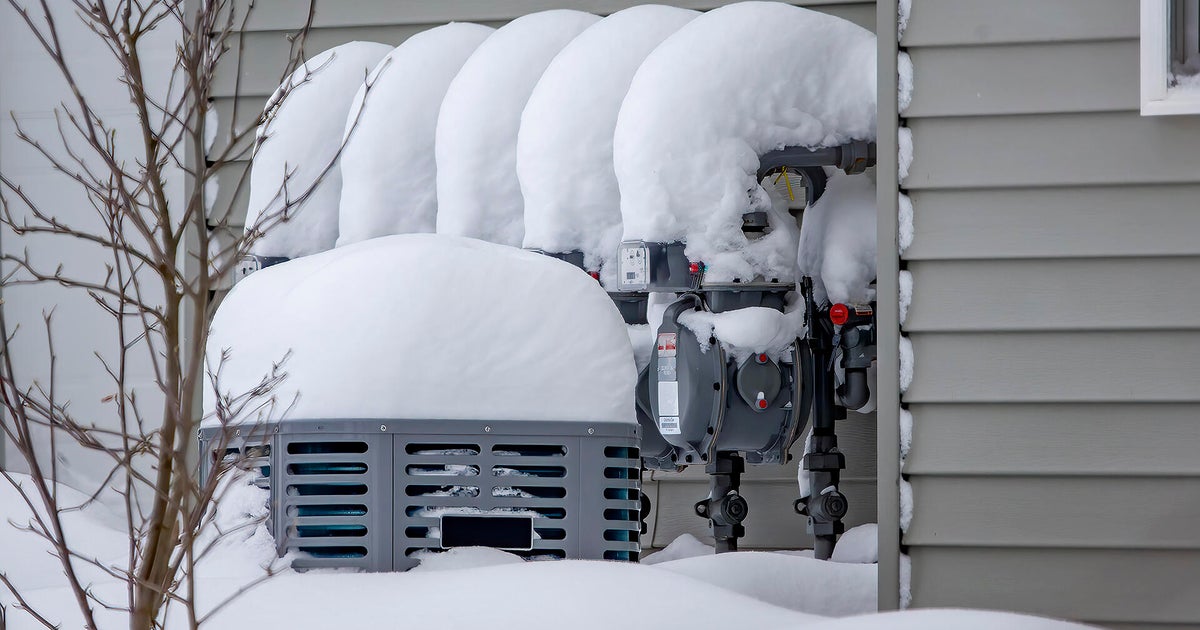Service members and families affected by toxic water at Marine base still seeking justice decades later
A bipartisan group of lawmakers has introduced legislation that would help thousands of military families get accountability in the courts for exposure to contaminated water that goes back generations.
The U.S. government acknowledges that for nearly 35 years, until 1987, those who lived on a Marine base in North Carolina were potentially exposed to dangerous chemicals, drinking, swimming, and bathing in potentially toxic water. As a result, the Department of Veterans Affairs will cover medical costs for Parkinson's disease and a wide array of cancers, including kidney, liver and leukemia.
But as CBS News senior investigative correspondent Catherine Herridge reports, to this day, we found families are still seeking justice, fighting to get their stories heard in court.
In an interview with CBS News, Senator Richard Blumenthal (D-Conn.), part of the bipartisan group who introduced the legislation, called on the Department of Defense to carry out a comprehensive review.
"The Pentagon ought to do a national audit of all its bases," Blumenthal said, "to determine where there may have been contamination, where it continues, and what can be done to stop it."
Tucked away in a remote corner of a North Carolina cemetery is row after row of infant graves. "This is what we call baby heaven," said retired drill instructor Jerry Ensminger. One marker reads, "Born October 6, died October 7."
Ensminger was among the first to call out the Marine Corps over toxic drinking water at Camp Lejeune, which is just down the road from the cemetery.
Herridge asked, "What killed all these children?"
"It falls right within that period of time when the water was contaminated," Ensminger replied.
From 1953 to 1987, those serving at the sprawling Marine base were potentially exposed to contaminated water. For years, toxic agents seeped into the soil and poisoned the groundwater at fuel depots, base junkyards, even a dry cleaner that has since been demolished and designated a hazardous site.
In some areas, tainted water was 400 times what safety standards allowed, according to the Agency for Toxic Substances and Disease Registry.
Ensminger said, "When I first heard about this, it was like God opened the sky up and said, 'Hey, Jerry, here's a possible answer to that question that has nagged you for …' By that time it was 14, 15 years."
In 1982, Ensminger's six-year-old daughter, Janey, was diagnosed with leukemia.
"Was toxic water to blame?" asked Herridge.
"I blame it," he replied.
Janey passed in 1985; she was 9 years old. "She died on Tuesday, it was in the afternoon," he said.
"You're a Marine. Was this the hardest thing you've ever had to live through?"
"Nothing compares to watching one of your kids suffer and go through hell," Ensminger said, "And I blame the Marine Corps and the Department of the Navy."
While the Marine Corps declined an on-camera interview, their experts showed CBS News the ongoing cleanup at Camp Lejeune, where they said the drinking water is tested every day.
But 40 years ago, at the base housing known as Tarawa Terrace, the water was not safe. Ensminger lived there.
So did the family of Latrell Watts. She told Herridge, "When my dad found out he called us. He said, 'That water on Camp Lejeune was poison. That's where we lived at.'"
Military records show her father, Booker, was stationed at Camp Lejeune in the mid-1970s when his wife was pregnant with Latrell.
Herridge asked, "You and your sister have been sick over the years. What about the siblings who didn't live on the base?"
"They're not sick," she replied.
With no family history of breast cancer, Latrell questions why it killed her mother at 42, and she says she struggles with chronic anemia and reproductive issues.
Senators Blumenthal, Thom Tillis (R-N.C.), Richard Burr (R-N.C.), and Gary Peters (D-Mich), introduced the bipartisan Camp Lejeune Justice Act that would address what they call unfair legal barriers that block military families from suing the government. "The clock ran out on these claims, because the United States government concealed it," he said. "Now the government is saying, 'Sorry.'"
Blumenthal said there are "Thousands, literally tens of thousands of veterans who have very legitimate, serious claims for injuries they've suffered – cancer, Parkinson's disease."
Last month in Hawaii – decades after the contamination in Camp Lejeune – the Navy said 4,000 families moved into temporary housing after contaminated water was discovered.
"Approximately 4,000 families opted to move into temporary housing or lodging while about 4,000 families chose to remain in their residences," said a Navy spokesperson. In addition to investigations that will determine the cause, the Navy spokesperson said, "Approximately 8,000 homes on the Navy water system are being flushed out of an extreme abundance of caution. Restoring clean, safe, drinking water to our families and communities is our highest priority.
"We are partnering with and relying on the experts at Hawaii Department of Health, U.S. Environmental Protection Agency, and certified labs on the mainland to ensure the water is safe to drink," the Navy spokesperson added.
Environmental Working Group, an environmental research organization, reports 385 military sites "have contaminated drinking water or groundwater." A senior Defense Department official told CBS News they are working with the group to determine the most accurate data.
Jerry Ensminger told Herridge, "If this would have been a corporation that did this, their asses would have been in court decades ago."
Now working with a law firm, Lattrell Watts is putting her faith in the pending legislation, and working through her own pain by writing poetry:
"The babies of Camp Lejeune that lay in their grave,
that did not enlist but was kissed with the poison
who will lay the claim?
Who will take the blame?"
A senior Defense Department official told CBS News they are running hundreds of investigations to make sure the water is safe at military bases, and they are committed to more transparency in the future about their findings and the actions they take.






